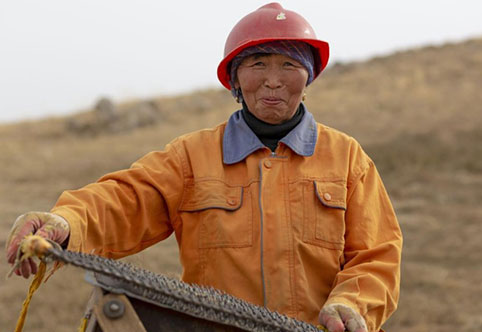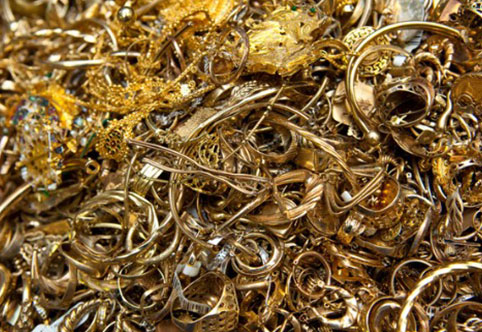Backing Up Our Health and Environmental Concerns


David H. Fell & Co. have recently received SCS certification for recycled content, and we couldn’t be more proud of that. This certification demonstrates our commitment to making our industry a sustainable and ethical one. As anyone can make claims about the sustainability of their product, there must be some process for independently verifying such claims. Auditing by a third party as trustworthy as SCS Global Services is an essential part of becoming more transparent.
To be clear, David H. Fell & Co. uses only SCS Certified Recycled metals. But we follow the worldwide precious metals industry closely, and we think it’s useful to be aware of the arguments for and against recycled, LSM (large scale mining) and ASM (artisanal and small scale mining) of gold.
There is a lot of debate in the responsibility community about the ethics of recycling metal, particularly gold. Many people involved with NGOs will argue that recycled metal robs artisanal miners of their livelihood. The sustainability community, on the other hand, has qualms with the fact that recycled certifications apply to both post-consumer and post-industrial metals and not to post-consumer metals only. We believe in the importance of using recycled metals, of being judicious in our use of a nonrenewable resource, but we also recognize that there are good arguments on both sides, and that what is best for the environment, and for each of us, often lies in a combination of approaches.
We must also recognize that mining is not inherently exploitative. We tend to think of mining as a dirty, dangerous, and destructive industry, but the mining industry has taken steps to clean up its act in the past twenty years. As a result of increasing environmental awareness on the part of consumers, the industry has developed more environmentally friendly methods, implemented safety measures for its workers around the world, and worked with indigenous people to use the land more responsibly.
Moreover, not all mining is done by multinational corporations that suck up resources in foreign countries and dispossess local people. Artisanal miners exist all over the world, running small-scale mines and mining with hand tools. This type of mining, done by individuals not associated with any mining company, supports 100 million people around the world, mainly in the developing nations of the global south. In fact, 90% of the world’s miners are engaged in this type of small-scale mining, and 30% of them are women.
Advocates for artisanal miners say that this type of mining is far more sustainable than industrial-scale mining, and supporting these miners is a way to benefit local communities rather than large corporations. NGOs that support artisanal miners work to make the job safer, to eliminate child labor, and to ensure that miners get a fair price for the metals and gemstones they work hard to extract. One such organization is Fairmined, which certifies gold from responsible artisanal miners.
While these organizations do great work to improve the lives of impoverished people in developing countries, we must not romanticize what is still a difficult, demanding job done by people who often have no protection from toxic chemicals and few legal protections, often in regions embroiled in conflict and political instability. And while supporting artisanal miners is an admirable goal, it should be part of a broader overall strategy for making mining safer and more equitable for all involved and for reducing the environmental impact of mining.
Using recycled metals is part of that broader strategy. According to the EPA, consumers threw away 2.3 tons of ferrous metal and 10.5 million tons of steel in 2018 alone. Worldwide, $10 billion of precious metals get tossed in the trash each year in the form of electronic waste (old computers, cell phones, televisions, and the like). Recycling programs, and businesses who use recycled metals, are doing their part to reduce this waste and ensure that those artisanal miners have a job for generations to come. After all, they can’t work if we wastefully exhaust the world’s mines. Some experts estimate that the world will start running out of gold by 2050. After that point, finding new sources of gold will become more resource intensive and less profitable. Recycling the gold we have already extracted will help push that date back further and further.
Recycling metals also helps to reduce emissions not only from the mining process itself but from the transport of metals around the world by boat, plane, train, and truck. Amid rising fuel costs, supply chain shortages, and political instability around the world, it’s important for us to get closer to our raw materials and shorten supply chains. Sustainable sourcing is vital to this industry going forward, and using recycled materials is an important incremental step in making supply chains more sustainable.
It's not a case of supporting artisanal miners or using recycled gold. Both have their place if industries that use precious metals—and the societies that rely on them—are to thrive in the decades to come.

